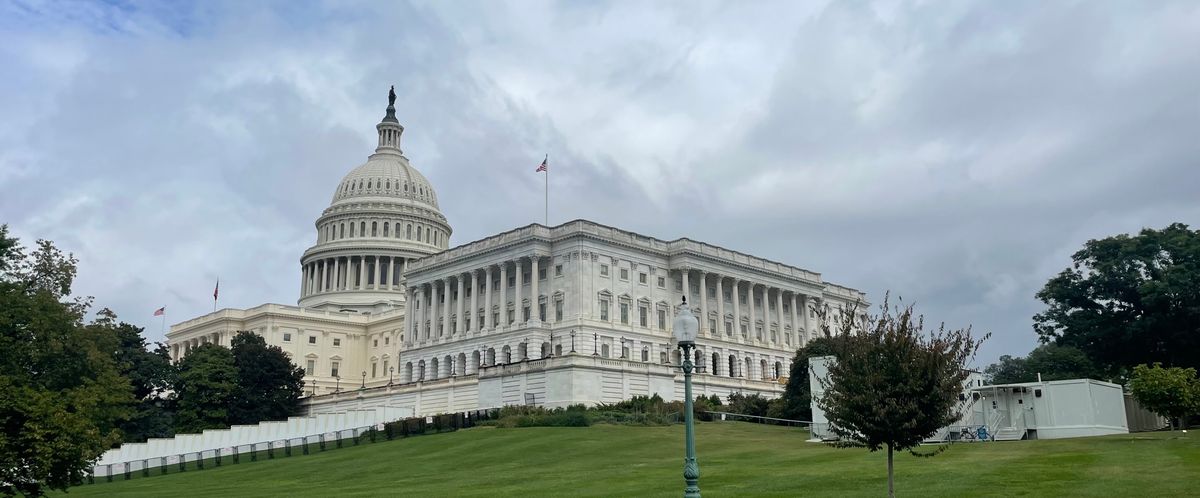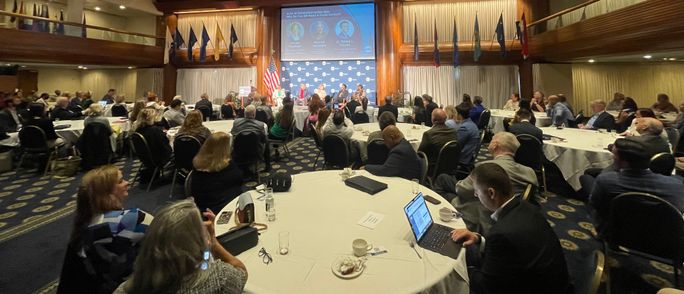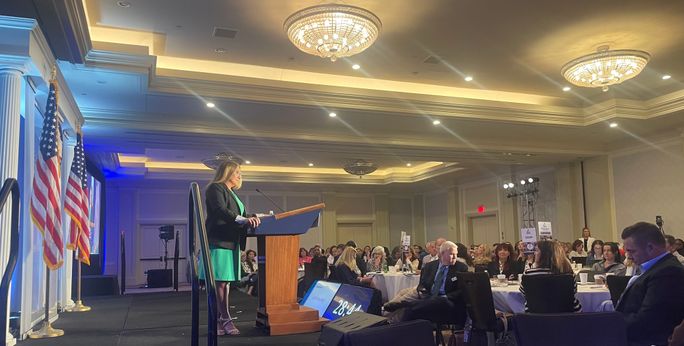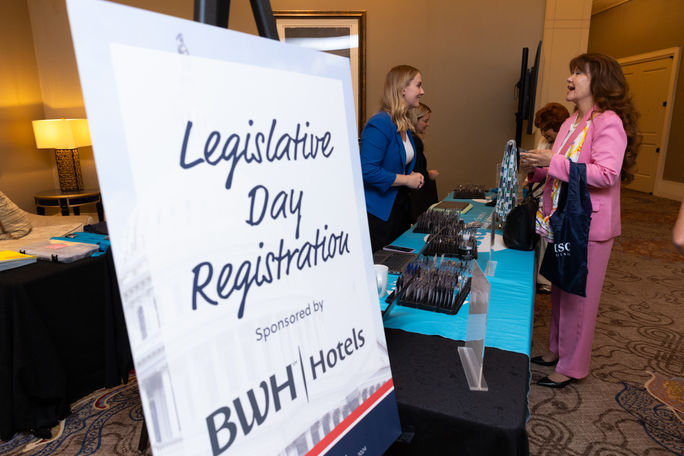Travel
Travel Advisors Push for Pivotal Policy Changes During ASTA Legislative Day

More than 250 travel advisors descended on Washington, D.C. to push for policies aimed at propelling an industry that managed $115 billion in bookings in 2023 during the American Society of Travel Advisors‘ (ASTA) annual Legislative Day.
Advisors, travel suppliers and industry advocates gathered over three days from September 16-18 for engaging panel discussions, training and Q&A sessions as well as unique networking opportunities throughout the nation’s capital. The event, which was last held in June 2023, culminated with pivotal meetings with lawmakers on Capitol Hill.
“Engaging in the legislative process is imperative to ensure policymakers understand how the travel policies they create affect travel advisors – their constituents,” said ASTA President & CEO Zane Kerby.
This year saw ASTA advisors from more than 40 states not only tout their businesses—travel agency sales are projected to reach $141.3 billion and 26 percent of the total travel market by 2026—but push for congressional support for two important pieces of legislation, including the Flight Refund Fairness Act and the ACPAC (Aviation Consumer Protection Advisory Committee) Modernization Act.
Experts Share the Travel Industry Forecast
ASTA Legislative Day once again kicked off with a two-hour The Travel Industry Forecast from Leading Experts event at the National Press Club featuring experts sharing insights on the current travel landscape, including topics such as artificial intelligence (AI) and American Airlines’ controversial New Distribution Capability (NDC) changes, among others.
“For us, we’re putting out the fires before they even happen,” said Terika Haynes, CEO and Founder of Dynamite Travel. “They (AI) don’t have the concept of being proactive and as a consumer sometimes you never see that because it never happened.”
“Sure, there are things that AI may be helpful for but it can never replace us because there are skills, expertise, relationships and connections that we have that AI will never have,” said Haynes.

ASTA Legislative Day at the National Press Club in Washington, DC. (Photo Credit: Patrick Clarke)
Experts also chimed in on the benefits of managed travel programs and NDC challenges and suggested that travel advisors be prepared as these changes to technology are not only helpful but inevitable.
“American was pushing a round peg in a square hole at a time when the industry wasn’t ready for it,” said Rita Visser, Director of Global Travel Sourcing and GPO for Oracle.
Advisors’ collective voice was paramount in getting American to reverse course on NDC earlier this year and it was that voice that went to work on Capitol Hill.
When it comes to the issues ASTA seeks to highlight in its meetings with lawmakers, the organization targets policies that are bipartisan, easy to explain, actionable and relevant to its members’ business models.
Supporting the Flight Refund Fairness Act
Rep. Maria Salazar (R-FL) recently introduced the Flight Refund Fairness Act (H.R. 9952) with the support of Reps. Dina Titus (D-NV) and Mark Alford (R-MO) in response to the Department of Transportation’s (DOT) final ruling on airline refunds and other consumer protections earlier this year.
The bill would ensure that small business travel agencies are not responsible for refunding their clients for canceled flights until the agency receives the funds from the airlines.
Kerby thanked lawmakers and championed the Flight Refund Fairness Act, noting that it “recognizes that small businesses are the backbone of our nation’s economy.”

Jessica Klement, Vice President of Advocacy, ASTA speaks during an issues training session at ASTA Legislative Day. (Photo Credit: Patrick Clarke)
Approximately 98 percent of travel agencies are considered small businesses by the Small Business Administration.
Without new language, ASTA believes the DOT ruling—set to take effect on October 28—would be “catastrophic” for some agencies that could face stiff fines for failing to promptly turn over refunds to their clients even in cases where the airline is in possession of the payment.
It’s worth noting that only a small percentage—less than 10 percent—of agencies would likely be impacted, mainly those booking large groups. However, DOT’s ruling could devastate those agencies by costing them tens of thousands of dollars through enforcement.
Co-Sponsoring the ACPAC Modernization Act
ASTA Legislative Day attendees also lobbied for the co-sponsorship of the ACPAC Modernization Act (H.R. 3780). If passed, this would add a ticket agent seat to the DOT’s ACPAC.
“Since DOT regulates travel agencies as sellers of airline tickets, travel advisors should have an opportunity to weigh in on policies that affect them,” said Kerby. “As more consumers turn to travel advisors for their travel needs, it has become increasingly clear that a ticket agent seat should be added to this committee.”
John Breyault of the National Consumers League (Vice President, Public Policy, Telecommunications and Fraud), notably pushed back against ASTA’s request, arguing that adding one more seat to the four-member committee would open the door for the airline industry to clamor for another seat, ultimately rendering any addition irrelevant.

Advisors arrive at ASTA Legislative Day. (Photo Credit: ASTA)
Beyond the legislation advisors lobbied for on Capitol Hill, the event was another important opportunity to champion advisors and their positive impact to the economy.
According to ASTA, advisors sell 40 percent of all air travel—including 735,000 air tickets daily totaling $95.3 billion in annual sales last year—59 percent of cruise bookings and 75 percent of tour packages.
“Legislative Day is a meaningful way for our members to be at the table, telling their stories,” Kerby said.
For the latest travel news, updates and deals, subscribe to the daily TravelPulse newsletter.








